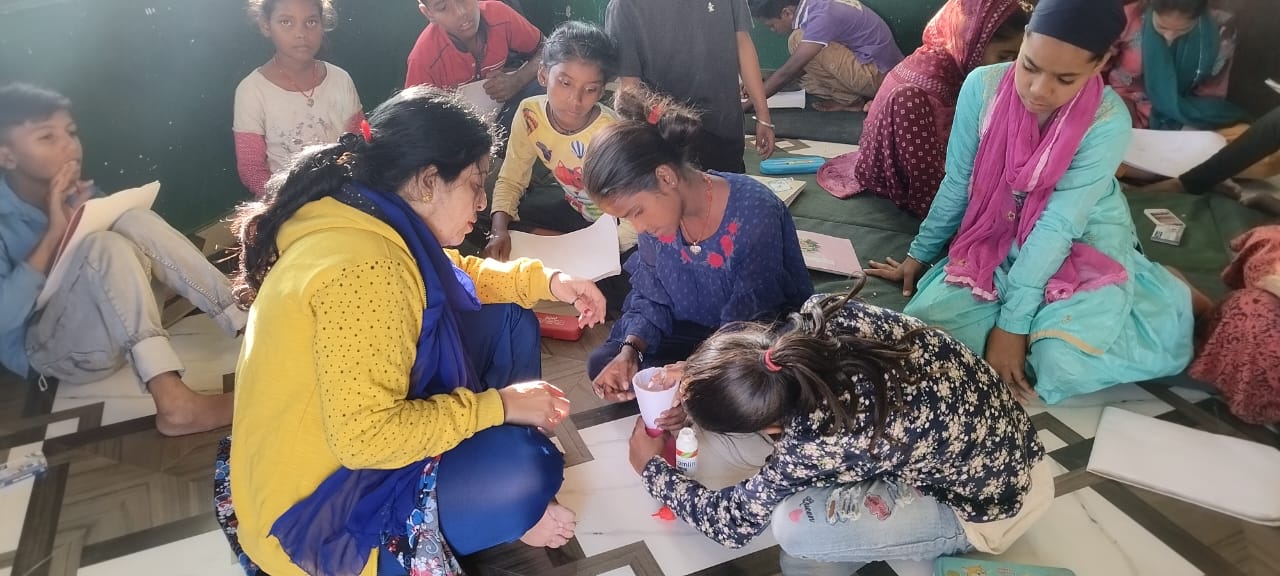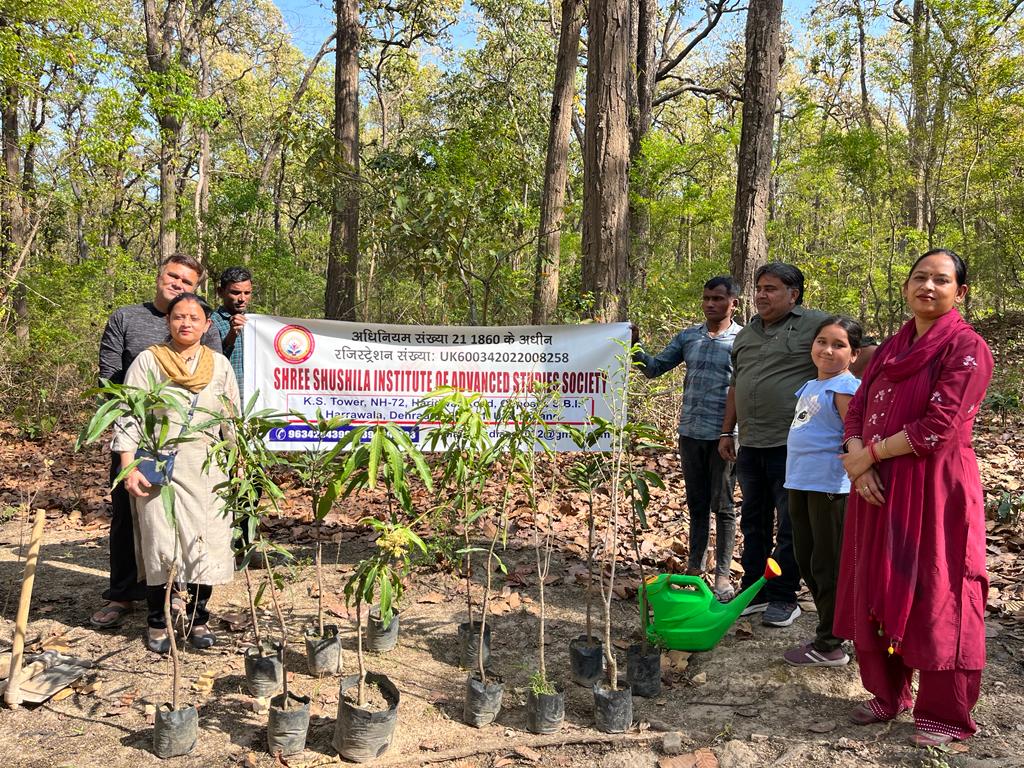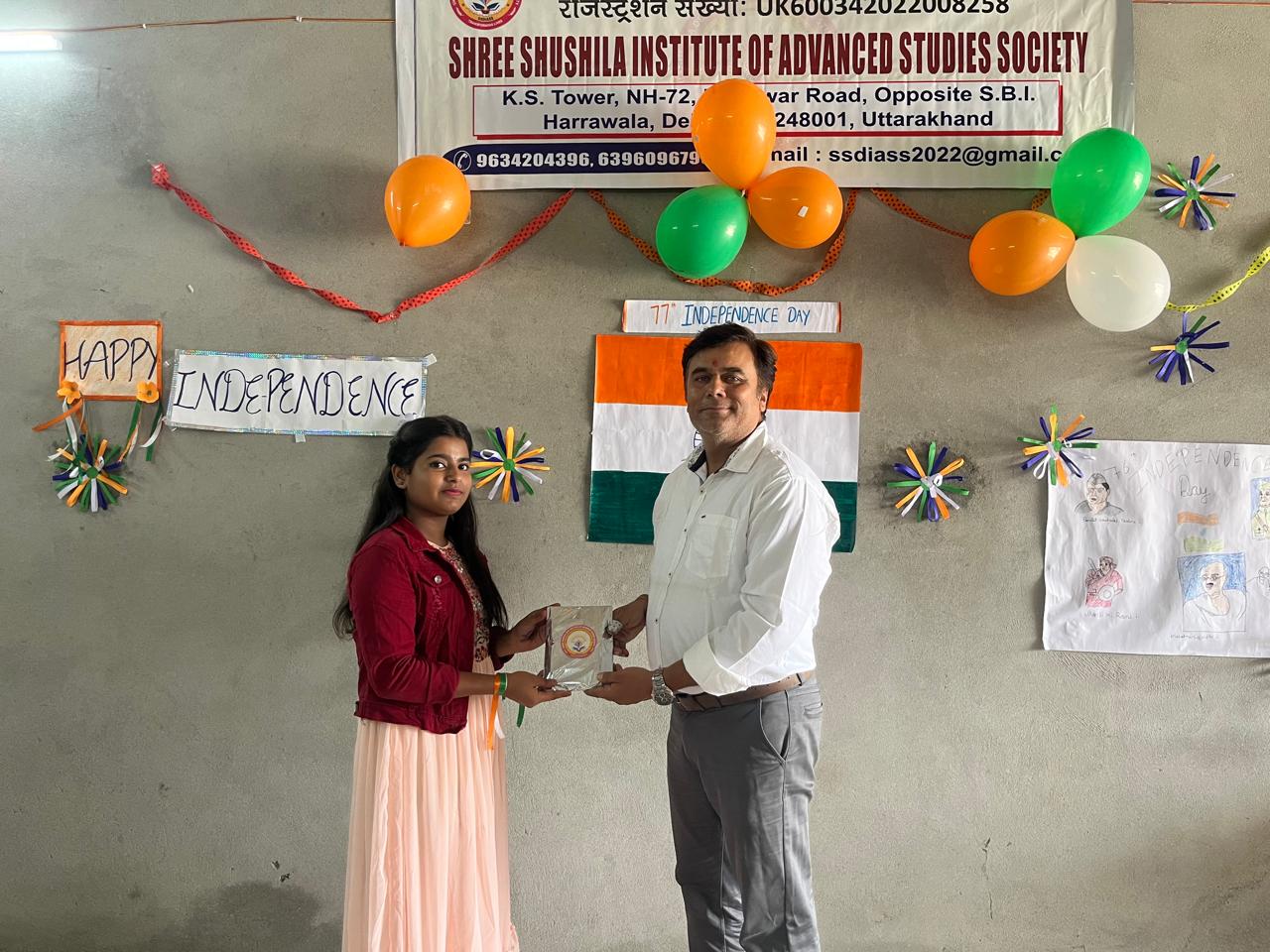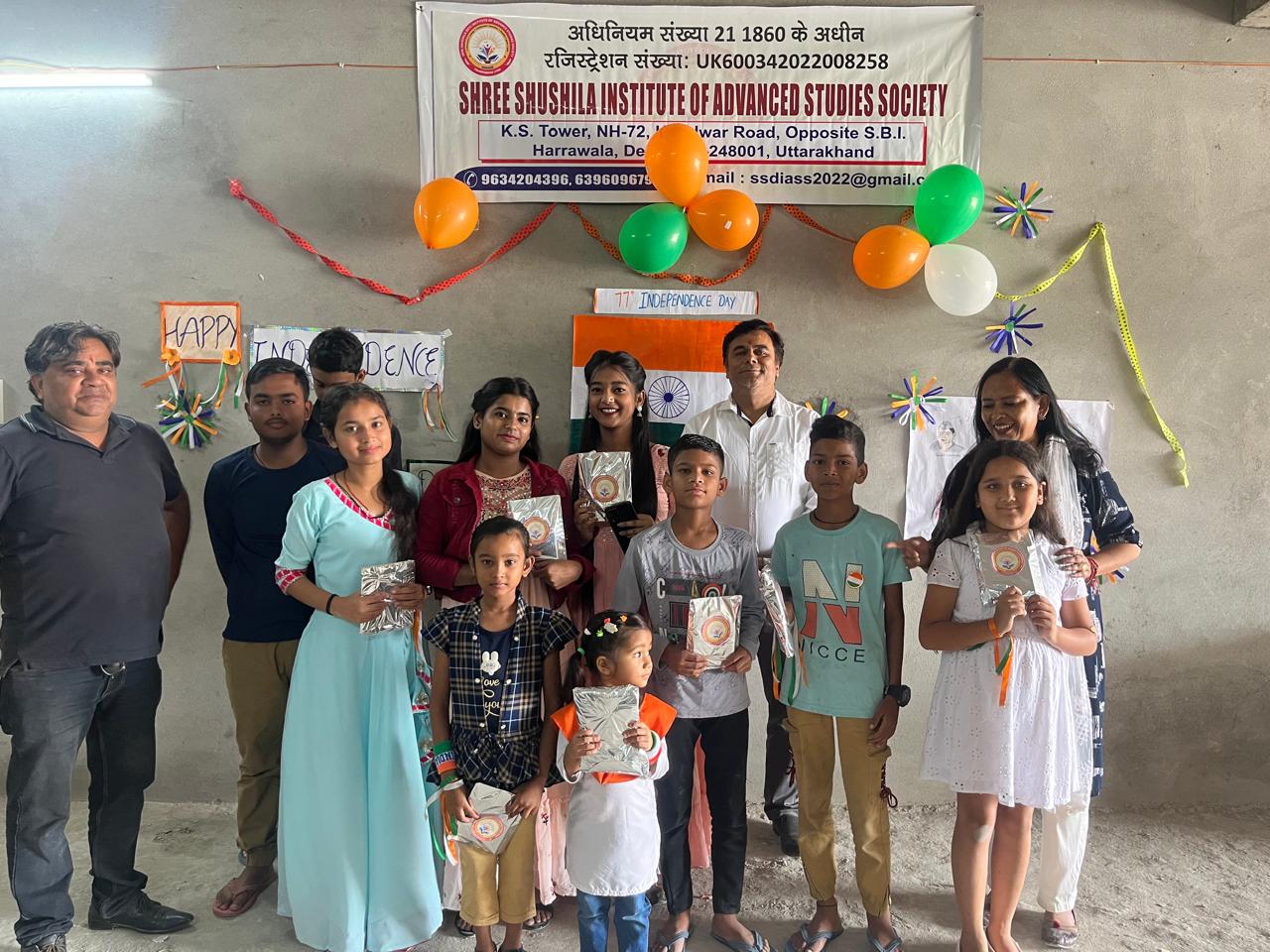
Shri Sushila Devi Institute of Advanced Studies Society (SSDIASS), established in the heart of Uttarakhand, stands as a pillar of hope and progress in the Himalayan region. With a clear mission to extend academic and social development to the marginalized—particularly the handicapped, the wards of widows, martyrs, and freedom fighters—SSDIASS is dedicated to transforming lives. In today’s rapidly evolving world, two issues stand out as paramount: environmental sustainability and women empowerment. SSDIASS embraces both, integrating eco-friendly practices with initiatives to uplift women, thereby ensuring that development is not only inclusive but also sustainable.

I. Embracing Environmental Sustainability
A. The Critical Need for Environmental Protection in Uttarakhand
Uttarakhand’s unique geography—a mix of deep valleys, rugged mountains, and fragile ecosystems—demands urgent and sustained environmental stewardship. The region is not only a repository of rich biodiversity but also a frontline in the battle against climate change. SSDIASS recognizes that the health of the environment directly impacts the quality of life and long-term prosperity of its people.
Biodiversity Preservation: The society actively promotes the conservation of local flora and fauna, understanding that a healthy ecosystem supports everything from agriculture to tourism.
Climate Resilience: With climate change affecting weather patterns and water availability, SSDIASS encourages adaptive practices such as rainwater harvesting and sustainable agriculture.
B. Practical Initiatives for a Greener Tomorrow
SSDIASS has designed and implemented several programs aimed at mitigating environmental degradation:
Afforestation and Reforestation Projects:
SSDIASS organizes community tree-planting drives to restore deforested areas. These initiatives help to sequester carbon dioxide, stabilize soils, and foster local biodiversity. By involving local communities in these efforts, the society not only creates green cover but also raises awareness about the importance of sustainable land use.
Waste Management and Recycling Campaigns:
Recognizing the harmful effects of improper waste disposal, SSDIASS has launched educational campaigns on reducing, reusing, and recycling. Workshops focus on minimizing single-use plastics and promoting the use of eco-friendly alternatives, which in turn helps protect local water bodies and soil.
Promotion of Renewable Energy Sources:
To reduce dependency on fossil fuels, SSDIASS advocates for renewable energy. Initiatives include setting up solar panels in community centers and encouraging the adoption of biogas and other sustainable energy solutions. These efforts not only decrease carbon emissions but also provide cost-effective energy options for rural households.
Water Conservation and Management:
In many parts of Uttarakhand, water scarcity is a pressing issue. SSDIASS supports projects that install rainwater harvesting systems, promote water-saving irrigation techniques, and educate locals on efficient water use. These measures ensure that water resources are managed sustainably, benefiting both agriculture and domestic use.
Environmental Education and Awareness:
Beyond practical interventions, SSDIASS is committed to educating the next generation about environmental stewardship. Through seminars, workshops, and school outreach programs, students learn about ecological challenges and the importance of sustainable living. This educational push is aimed at fostering an eco-conscious mindset that will benefit the region for decades to come.


II. Advancing Women Empowerment
A. Addressing the Challenges Faced by Women in Rural and Tribal Areas
In the Himalayan region, women often shoulder multiple responsibilities, ranging from household duties to contributing significantly in agricultural and informal sectors. Despite their pivotal role in society, many women face obstacles such as limited access to education, economic dependency, and social discrimination. SSDIASS views women empowerment as a critical lever for socio-economic progress.
Breaking Traditional Barriers:
Deep-rooted patriarchal norms often restrict women from pursuing higher education and professional opportunities. SSDIASS is working to dismantle these barriers by promoting gender equality through various community programs and policy advocacy.
Economic Empowerment:
Economic independence is a vital component of empowerment. SSDIASS designs initiatives that offer vocational training and micro-credit facilities, enabling women to start their own businesses and secure stable incomes.
B. Comprehensive Programs to Empower Women
SSDIASS has developed a multifaceted approach to address the myriad challenges women face:
Skill Development and Vocational Training:
Tailored programs in areas such as tailoring, handicrafts, organic farming, and digital literacy provide women with marketable skills. These courses are designed to be accessible and practical, empowering women to contribute to their household incomes and the broader economy.
Entrepreneurship and Micro-Finance Initiatives:
SSDIASS facilitates women-led start-ups by offering mentorship, financial literacy training, and assistance in accessing micro-credit. By nurturing entrepreneurship, the society ensures that women have the tools to innovate and lead, thereby transforming local economies.
Educational and Literacy Programs:
Access to quality education is fundamental to empowerment. SSDIASS organizes adult literacy classes, scholarship programs for girls, and seminars that focus on legal rights and civic responsibilities. These initiatives help women to develop self-confidence and participate actively in decision-making processes.
Healthcare, Nutrition, and Well-being Workshops:
Recognizing that health is the foundation of empowerment, SSDIASS conducts regular workshops on maternal health, nutrition, and general wellness. By providing information on preventive healthcare and ensuring access to medical resources, the society improves the overall quality of life for women and their families.
Leadership and Community Engagement Programs:
Empowerment extends beyond financial independence. SSDIASS encourages women to take on leadership roles within their communities by organizing forums, leadership training sessions, and networking events. These initiatives foster a sense of agency and enable women to advocate for their rights and the needs of their communities.
III. Integrating Environmental and Social Empowerment
A. The Synergy Between Green Initiatives and Women Empowerment
The efforts to conserve the environment and empower women are not mutually exclusive—they complement each other and drive holistic community development. Women, particularly in rural and tribal areas, are often the primary managers of natural resources such as water, forests, and agricultural land. By equipping them with education and economic resources, SSDIASS enhances their ability to manage these resources sustainably.
Women as Environmental Stewards:
Empowered women can lead local conservation projects, promoting practices that protect biodiversity and manage natural resources responsibly. For instance, women-led cooperatives in organic farming not only boost economic resilience but also encourage sustainable agricultural practices that reduce environmental degradation.
Community-Driven Sustainability:
By involving women in environmental decision-making, SSDIASS creates a model of community-led sustainability. When women have a voice in local governance and resource management, policies tend to be more inclusive and effective, addressing both ecological and social needs.
B. Case Studies and Success Stories
Across Uttarakhand, several women-led initiatives have begun to make a significant impact:
Organic Farming Collectives:
In one village, a group of women, trained by SSDIASS, established an organic farm that uses eco-friendly practices. The collective not only produces high-quality produce for local markets but also educates neighboring communities about sustainable farming techniques.
Renewable Energy Projects:
In another success story, women technicians installed solar-powered water pumps in remote areas, ensuring a reliable water supply during dry seasons. This project not only improved access to water but also provided employment opportunities for local women, setting a precedent for renewable energy adoption in rural regions.
IV. A Vision for the Future: Holistic Societal Transformation
SSDIASS is not just an organization—it is a movement for comprehensive change. Its integrated approach to environmental conservation and women empowerment is paving the way for a future where economic development, social justice, and ecological sustainability go hand in hand.
Research and Innovation:
By fostering academic research and professional education, SSDIASS continuously explores innovative solutions to regional challenges. Collaborative projects with universities and research institutions help in developing context-specific strategies that address both environmental and social issues.
Collaborative Partnerships:
Recognizing that lasting change requires collective effort, SSDIASS partners with government agencies, non-governmental organizations, and community leaders. These partnerships amplify the impact of its programs and create networks of support that extend beyond the confines of the organization.
Future Initiatives:
Looking ahead, SSDIASS aims to expand its programs to include advanced training in sustainable technologies, further integration of women into environmental governance, and the development of eco-friendly business incubators. These initiatives are designed to empower more individuals and ensure that progress is both inclusive and sustainable.
Conclusion
In a world where environmental challenges and gender disparities continue to pose significant hurdles, SSDIASS emerges as a beacon of transformation. By integrating robust environmental initiatives with comprehensive women empowerment programs, the society is setting a new standard for sustainable development in Uttarakhand and the broader Himalayan region. Through education, community engagement, and innovative partnerships, SSDIASS is not only improving lives today but also securing a resilient and equitable future for generations to come.
Let us join hands in supporting SSDIASS’s mission—a mission that envisions a world where nature thrives, women lead, and every individual has the opportunity to contribute to a sustainable, vibrant society.
